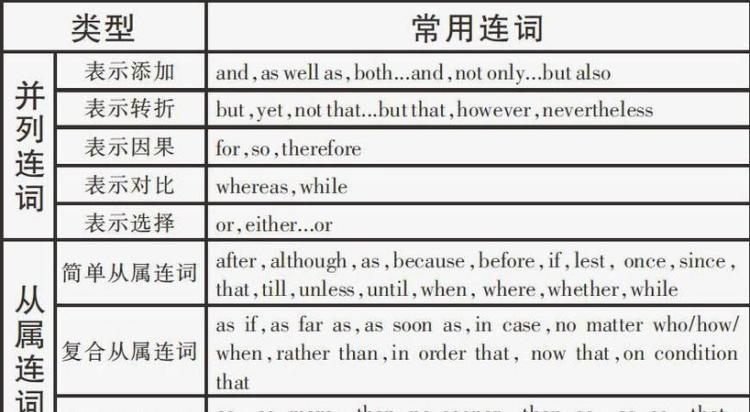英语中的从属连词和并列连词是连接句子的重要工具。从属连词如"that", "if", "because"等,用于连接主从句,表示从属关系。并列连词如"and", "or", "but"等,用于连接并列的句子或短语,表示并列关系。理解和掌握这些连词的用法,可以帮助更好地理解和掌握英语的语法知识。

从属连词
从属连词包括:that, if, whether, because, since, as, while, when, before, after, unless等。以下是一些例子:
- I know that he is coming.
- If it rains, we will stay at home.
- I don't know whether he will come or not.
- Because it was raining, we didn't go out.
- Since he is busy, he can't come to the party.
- While he was reading a book, I was watching TV.
- When I arrived at the station, the train had already left.
- Before you go to bed, please turn off the lights.
- After I finished my homework, I watched TV.
- Unless you study hard, you can't pass the exam.
并列连词
并列连词包括:and, or, but, for, so, yet等。以下是一些例子:
- I like coffee and tea.
- You can choose either coffee or tea.
- He is rich, but he is not happy.
- She is beautiful, so she is very popular.
- He was tired, yet he kept on working.
需要注意的是,and和or还可以用于连接词组、单词或数字,例如:
- John and Mary
- Apples and oranges
- 10 and 20

